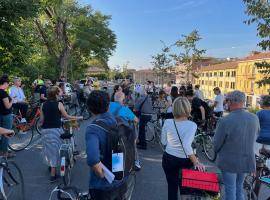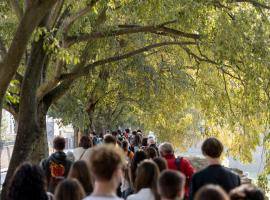The original idea for the construction of the smart component of the cycle lane foresaw the exploitation of the hi-tech modules mOOve™: an innovative technology that would have allowed embedding smart sensors (e.g., users-counter, air-quality, etc…), contributing to the collection of data for the city’s mobility and AQ monitoring networks,1 directly in the pavement of the infrastructure, together with safety features such as led-lightening and anti-frost. Unfortunately, the concretization of this idea encountered various challenges: first of all, challenges related to the procurement. Considering that the installation of the mOOve™ modules would have been tested for the first time ever through the Air-Break project, MUA had to spend several months identifying which best approach, compliant with national and European regulations, would have to be used for their purchase and installation. Furthermore, the consequences of shortages on the worldwide supply-chain related to the COVID-19 pandemic and of the energy crisis caused by the Russian-Ukrainian conflict, heavily affected the intervention. In fact, the construction process underwent an abrupt setback in May 2022 when the selected supplier and owner of the patent for the mOOve™ modules withdrew from contract due to the impossibility to deliver the product within the timeframe and at the price defined in the procurement procedure.
1. The elaboration process and functioning of the monitoring network is described in the first Air-Break Zoom-In, while the data collected through the Air-Break network are available on the project’s official webpage. The data will feed the elaboration of well-informed policies and behavioural changes strategies towards more sustainable individual mobility choices; more details on that are present in the second Air-Break Journal).




























